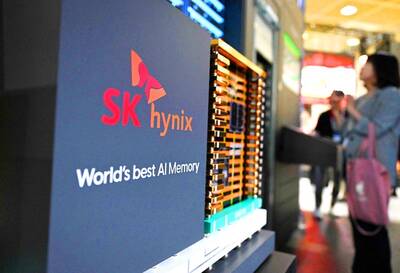New private investments — including local and foreign investments — in the first seven months of the year reached NT$737.7 billion (US$24.6 billion), rising 2.6 percent from the same period last year, statistics released yesterday by the Ministry of Economic Affairs showed.
For last month alone, new private investments totaled NT$39.7 billion, with 162 new cases, data showed.
Foreign investments in the first seven months of the year also rose by 13 percent to US$7.41 billion, from US$6.52 billion in the same period last year, data showed.
Costco Taiwan and Ford Lio Ho Motor Co (福特六和) were among the biggest foreign investors this year, the ministry’s Department of Investment Services said.
Ford Lio Ho, a Taiwanese subsidiary of US-based Ford Motor Co, plans to spend more than NT$2 billion to upgrade its 60 showrooms and to remodel its manufacturing facilities, while US hypermarket operator Costco plans to spend an undisclosed amount to build a store in Taoyuan, it said.
The US, Japan and Australia were the biggest foreign investors in the first half of the year, the latest figures available showed, investing US$1.86 billion, US$906 million and US$442 million respectively.
Foreign investments in the first six months of the year totaled 184 cases, or US$6.9 billion, up 19 percent from US$5.83 billion year-on-year, data showed.
The wholesale and retail, biomedicine and other services industries received the most investments, attracting US$1.86 billion, US$906 million and US$787 million respectively.

Intel Corp chief executive officer Lip-Bu Tan (陳立武) is expected to meet with Taiwanese suppliers next month in conjunction with the opening of the Computex Taipei trade show, supply chain sources said on Monday. The visit, the first for Tan to Taiwan since assuming his new post last month, would be aimed at enhancing Intel’s ties with suppliers in Taiwan as he attempts to help turn around the struggling US chipmaker, the sources said. Tan is to hold a banquet to celebrate Intel’s 40-year presence in Taiwan before Computex opens on May 20 and invite dozens of Taiwanese suppliers to exchange views

Application-specific integrated circuit designer Faraday Technology Corp (智原) yesterday said that although revenue this quarter would decline 30 percent from last quarter, it retained its full-year forecast of revenue growth of 100 percent. The company attributed the quarterly drop to a slowdown in customers’ production of chips using Faraday’s advanced packaging technology. The company is still confident about its revenue growth this year, given its strong “design-win” — or the projects it won to help customers design their chips, Faraday president Steve Wang (王國雍) told an online earnings conference. “The design-win this year is better than we expected. We believe we will win

Power supply and electronic components maker Delta Electronics Inc (台達電) yesterday said it plans to ship its new 1 megawatt charging systems for electric trucks and buses in the first half of next year at the earliest. The new charging piles, which deliver up to 1 megawatt of charging power, are designed for heavy-duty electric vehicles, and support a maximum current of 1,500 amperes and output of 1,250 volts, Delta said in a news release. “If everything goes smoothly, we could begin shipping those new charging systems as early as in the first half of next year,” a company official said. The new

SK Hynix Inc warned of increased volatility in the second half of this year despite resilient demand for artificial intelligence (AI) memory chips from big tech providers, reflecting the uncertainty surrounding US tariffs. The company reported a better-than-projected 158 percent jump in March-quarter operating income, propelled in part by stockpiling ahead of US President Donald Trump’s tariffs. SK Hynix stuck with a forecast for a doubling in demand for the high-bandwidth memory (HBM) essential to Nvidia Corp’s AI accelerators, which in turn drive giant data centers built by the likes of Microsoft Corp and Amazon.com Inc. That SK Hynix is maintaining its